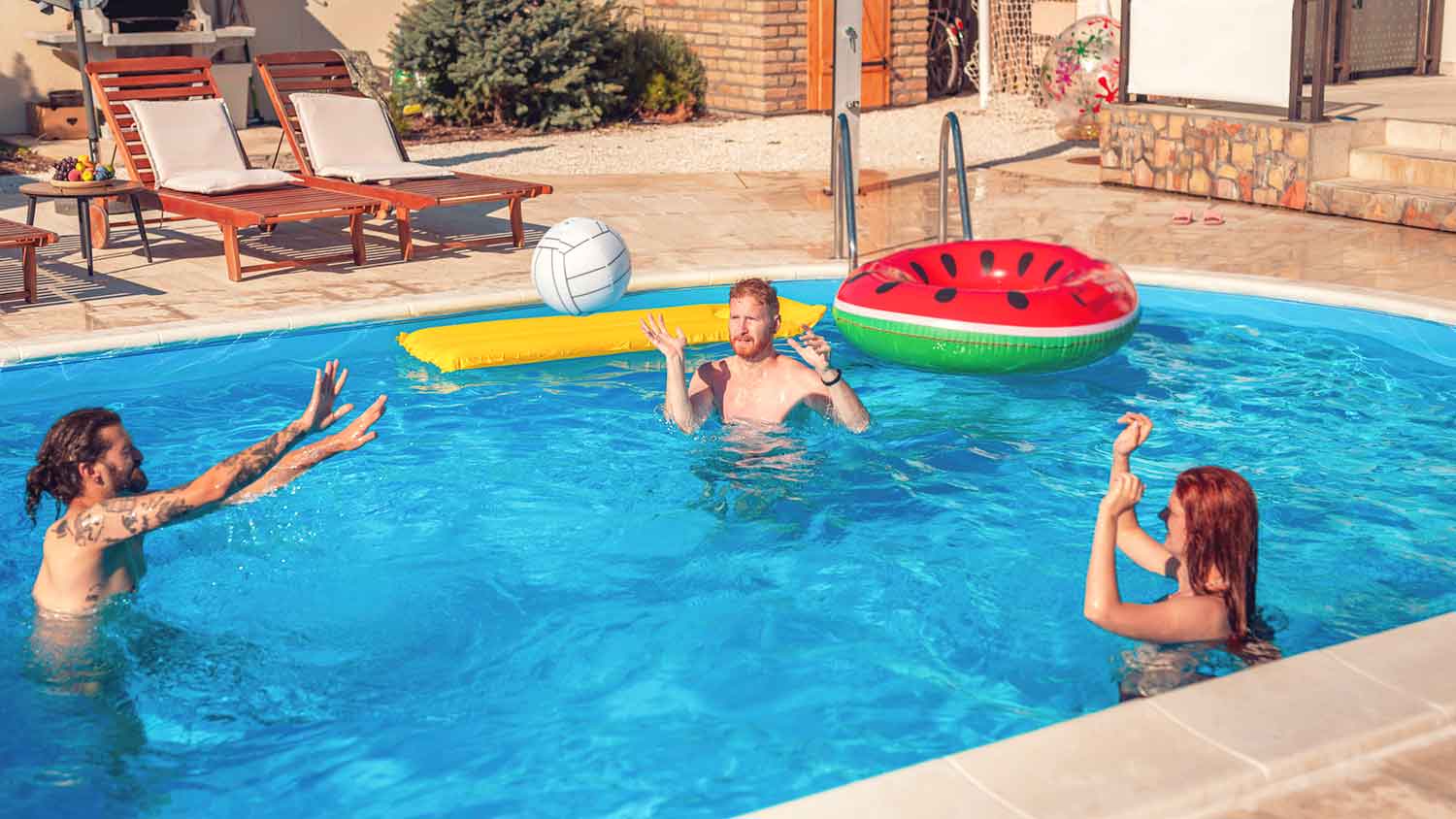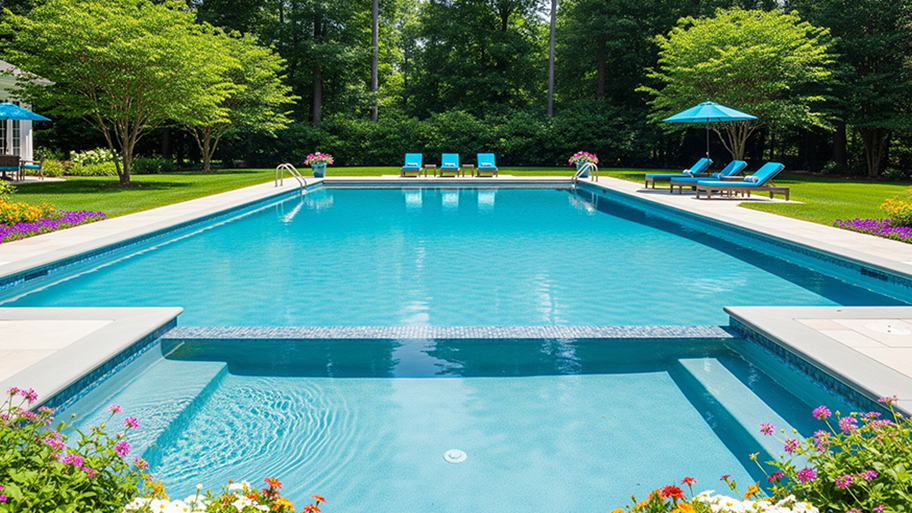
Lap pools are a great option if you're more interested in exercising than hanging out on a floatie. Learn all about lap pool costs in this guide.
Consider the pros and cons of owning a pool before you take the plunge


Pools offer a convenient way to exercise and entertain right in your backyard.
The initial costs and pool maintenance costs may be prohibitive.
Your budget, available yard space, and ability to perform maintenance are important factors in owning a pool.
If walking out your back door and diving into some cool, refreshing water for a morning swim sounds like a dream, you may be wondering if a home pool is right for you. These backyard features can be a significant investment, so you’ll want to explore all the pros and cons of a pool before you decide to make your dream a reality.
The ideal pool for your property will depend on your budget, available space, and the configuration of your yard, but all types of pools offer a water-filled space to swim or lounge. They all require regular maintenance to control water quality and ensure all of the pool’s components are in good working order.
A small yard might be perfect for a swim spa, while a larger backyard can feature a full-size in-ground or aboveground pool. From plunge pools to traditional concrete or fiberglass in-ground pools, the options may seem endless, but once you know what to consider before putting in a pool, you can make the right choice for your home.
| Pros | Cons |
|---|---|
| Great place to entertain | High upfront costs |
| Enhance physical and mental health | Regular, expensive maintenance |
| Conveniently close to home | Requires safety features |

Forget having to pack a bag, drive to the nearest community pool, and wait for open swim time—with your own pool, all you need to do is step outside. For avid swimmers or those looking for the easiest way to get their laps in, you can’t beat the convenience of a home pool.
When you have a pool, hosting get-togethers is a no-brainer. Your pool can be the focal point of family parties or casual hangouts with the neighbors. Pool parties are a great way to spend time with friends and family without feeling cramped inside your home.
Swimming is a great total body workout, and when it’s so easy to hop in the pool, you may find yourself getting into a regular exercise routine without much effort. Spending time in the pool can also be great for your mental health—there’s nothing like lounging on a float on a hot day to de-stress and relax.

The cost of installing a pool is one of the biggest drawbacks. An in-ground pool costs an average of $55,000 to install, and larger pools or added features can cause the price tag to skyrocket. You’ll need to hire a pool contractor to build your pool, and factors like excavation, permits, and materials can not only add to the cost but may extend how long it takes to build your pool.
Any pool owner can tell you that the maintenance required to keep your pool running properly and the water safe for swimming can feel like a never-ending process. It can also put quite a dent in your bank account. You can do your own pool maintenance or hire a pool service to take care of it, but larger repairs will likely require a call to a local pool repair company to ensure the job is done right.
Pools can be fun for the whole family, but they do introduce several safety concerns. In most places, you’ll need to install a fence around your pool for safety. You’ll also need to consider things like pool covers, warnings about diving safety, and other add-ons to keep people safe around the pool.
While a pool can often increase the value of your home, not all buyers are in the market for this feature, so you may run into trouble when it comes time to sell your home. Pools require a separate inspection at the time of sale and additional insurance costs that buyers might not want to take on.
If you love to swim but aren’t sure owning a pool is the best choice for you, you can consider one of these alternatives:
Using a community pool
Enrolling in a membership to a gym or sports club with a pool
Purchasing a day pass to a hotel or spa pool
If the pros of owning a pool outweigh the cons for you, it may be time to contact a local pool installer to learn about your options. A pool pro can advise you on what will best fit your yard, budget, and style. They’ll also be able to let you know about any factors you haven’t yet considered so you can make the best decision for your home.
From average costs to expert advice, get all the answers you need to get your job done.

Lap pools are a great option if you're more interested in exercising than hanging out on a floatie. Learn all about lap pool costs in this guide.

When you're long overdue for a pool upgrade, how much does a pool remodel cost? From a new finish to a whole new design, we'll break down your options here.

Need to update the look and feel of your pool? Use this guide on pool liner replacement cost to see how much this pool project will set you back.

Baking soda is a budget-friendly way to tackle DIY pool maintenance. Our guide explains how to add baking soda to a pool.

The type of pool finish you choose is the best way to both show off your personal style and protect your pool in the long run. Let's walk through your options for pool finishes.

A broken pool light can be dangerous as well as inconvenient. Learn who to call to fix your pool light safely and correctly.